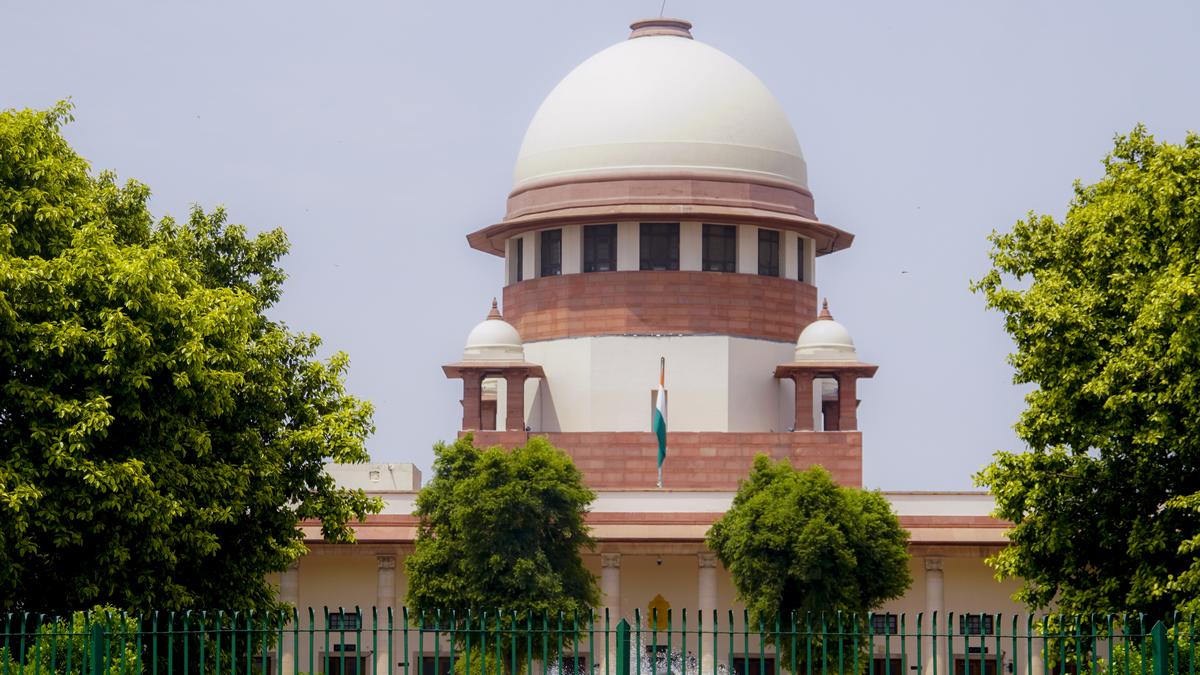Description

Copyright infringement not intended
Picture Courtesy: https://indianexpress.com/article/explained/everyday-explainers/narendra-modi-cabinet-committees-ccs-explained-9381592/
Context: Cabinet committees in India, formed by the Prime Minister with selected Cabinet ministers, streamline decision-making and advice on specific policy areas.
Cabinet Committees in India
- Cabinet committees are specialised groups formed by the Prime Minister of India, comprising selected Cabinet ministers. Their purpose is to facilitate thorough deliberation and decision-making on specific policy areas.
- These committees are crucial because they streamline the process of governance by allowing focused attention on critical issues without overwhelming the entire Cabinet with every decision.
|
Historical Background
●Before the portfolio system was introduced in India, the Governor-General handled all government business in a Council, functioning as a Joint Consultative Board.
●As the government's business increased, the work of various departments was distributed among Council members, with the Governor-General or Council collectively handling more important cases. This procedure was legalised by the Indian Councils Act, 1861, leading to the introduction of the portfolio system and the creation of the Executive Council.
●In 1935, the Viceroy's Private Secretary was given the additional designation of Secretary to the Executive Council. However, these posts were separated, and a separate Secretary was appointed to the Executive Council.
●The Cabinet Secretariat was renamed the Cabinet Secretariat in 1946, but its functions changed after independence, becoming an organisation for coordination between Ministries.
|
Types of Cabinet Committees
Cabinet Committee on Security (CCS)
- Chaired by the Prime Minister, it includes the Ministers of Defence, Home Affairs, External Affairs, and Finance.
- The CCS is the highest decision-making body on matters of national security and strategic affairs. It discusses and decides on defence strategy, internal security measures, intelligence operations, and foreign policy matters related to security implications.
- Due to its oversight of national security, the CCS is considered the most crucial Cabinet committee. Its decisions have far-reaching implications for the country's defence posture, internal stability, and foreign relations.
Cabinet Committee on Economic Affairs (CCEA)
- Chaired by the Prime Minister, it includes key ministers responsible for economic policy, finance, agriculture, industry, etc.
- Responsible for formulating and approving economic policies and major economic decisions. It oversees matters related to infrastructure development, industrial growth, resource allocation, and economic reforms.
Cabinet Committee on Political Affairs (CCPA)
- Chaired by the Prime Minister, it includes key political ministers.
- Deals with political issues and strategies, inter-ministerial coordination on political matters, and policy decisions affecting political stability and governance.
Other Cabinet Committees
- Besides the above, several other committees focus on specific sectors or issues such as investment, parliamentary affairs, employment, etc. Each committee is structured to address particular policy domains effectively.

Importance of the CCS
The Cabinet Committee on Security (CCS) holds particular significance within the spectrum of Cabinet committees for several reasons:
- National Security Oversight: It is directly responsible for overseeing national defence policies, internal security measures, and responses to security threats.
- Critical Ministerial Representation: By including the Ministers of Defence, Home Affairs, Finance, and External Affairs, the CCS ensures that decisions are informed by expertise across these critical sectors.
- Prime Ministerial Leadership: As it is typically chaired by the Prime Minister, the CCS reflects the highest level of government decision-making on matters of national security and strategic affairs.
- Decision-Making Authority: The CCS plays a pivotal role in crisis management, defence strategy formulation, intelligence operations oversight, and coordination of responses to security challenges both within India and on the international stage.
|
Coalition Governments and Ministerial Appointments
●In the context of coalition governments, the allocation of key ministerial portfolios such as Home, Defence, Finance, and External Affairs becomes a significant political exercise.
●The dominance of Major Parties: Dominant parties within coalitions often seek to retain control over key ministries to exert influence over policy decisions and governance priorities.
●Strategic Importance: Ministries like Home Affairs and Defence directly impact national security and internal stability, making them crucial for maintaining coalition cohesion and managing political alliances.
●Alignment with Coalition Agendas: Holding key portfolios allows dominant parties to ensure that coalition policies align with their broader political agendas, thereby facilitating smoother governance and policy implementation.
|
Functions of Cabinet Secretariat
- The Cabinet Secretariat, under the Prime Minister, functions as the administrative head of the government and serves as the ex-officio Chairman of the Civil Services Board.
- It is responsible for administering the Government of India (Transaction of Business) Rules, 1961 and the Government of India (Allocation of Business) Rules, 1961, which facilitate smooth business transactions in Ministries/Departments.
- The Secretariat assists in decision-making by ensuring inter-ministerial coordination, ironing out differences among Ministries/Departments, and evolving consensus through the instrumentality of standing/adhoc Committees of Secretaries.
- The Cabinet Secretariat provides secretarial assistance to the Cabinet and Cabinet committees, including convening meetings on the orders of the Prime Minister, preparing and circulation of the agenda, collecting papers related to cases on the agenda, preparing a record of discussions, and monitoring the implementation of decisions taken by the Cabinet and its Committees. The Cabinet Secretariat is the custodian of the papers of the Cabinet meetings.
Conclusion
- Cabinet committees like the CCS play a vital role in India's governance structure by focusing expertise and authority on critical policy areas. Understanding the dynamics of Cabinet committees and ministerial allocations is essential for comprehending how coalition governments function and how decisions are made at the highest levels of Indian governance.
Source:
Indian Express
Cabsec
|
PRACTICE QUESTION
Q. How many of the following statements are correct about Cabinet Committees in India?
A) They are mandated by the Constitution.
B) They are all permanent in nature.
C) They are established by the Prime Minister.
D) There are only two types of Cabinet Committees.
Select the correct answer using the codes given below:
A) Only one
B) Only two
C) Only three
D) All four
Answer: B
|









